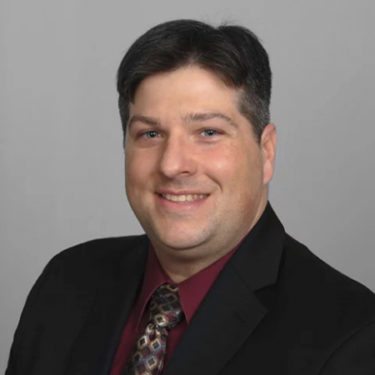A former NSA foreign surveillance agent tells The Sociable how censorship destroys the very diversity of thought it was meant to protect just before US President Trump signs an Executive Order to prevent online censorship.
Jim Penrose is a former NSA foreign surveillance agent and the current Chief Operating Officer at the cybersecurity firm, BlueVoyant, which works with global industries around the world to help them understand how nation-state adversaries think and what cultural norms push them to act the way they do in cyber warfare.

Jim Penrose
“Fundamentally, the scourge of censorship as we know it today is that it’s forcing an orthodoxy which actually destroys the very diversity it’s meant to protect”
During his 17 years of service in the NSA and beyond, Penrose has seen first-hand how misinformation campaigns have been launched to influence elections, and how censorship has impacted societies — from Russia, China, and the Middle East, and all the way back to the United States.
At the heart of the censorship debate is, as always, the issue of free speech.
“Censorship creates a scenario where assumptions don’t get the proper questioning that they need, and we need to have ideas tried in the crucible of public debate, and free speech is fundamental to that,” Penrose told The Sociable.
Free speech is complicated by the fact that big social platforms like Facebook and Twitter have billions of users from just about every country on the planet, and these countries don’t all have the same levels of protection for free speech in their laws, so regulating free speech on social is a slippery slope.
“Censorship creates a scenario where assumptions don’t get the proper questioning that they need, and we need to have ideas tried in the crucible of public debate, and free speech is fundamental to that” — Jim Penrose
However, at the time of writing, US President Donald Trump had just signed an Executive Order to Prevent Online Censorship, which stated, “Online platforms are engaging in selective censorship that is harming our national discourse,” and that “It is the policy of the United States that large online platforms, such as Twitter and Facebook, as the critical means of promoting the free flow of speech and ideas today, should not restrict protected speech.”
“Today, I’m signing an Executive Order to protect and uphold the free speech and rights of the American people,” Trump said at the time of signing.
“My Executive Order calls for new regulations under Section 230 of the Communications and Decency Act to make it that social media companies that engage in censoring or any political conduct will not be able to keep their liability shield,” he added.
Further elaborating on the subject of free speech vs censorship, Penrose said that people can say things we don’t like, or they may say things that are abhorrent, but at the end of the day, arguments should be won with the force of ideas and the proof to back up those statements.
“Instead of having that respectful conversation that we used to have, and we would have had if we were face-to-face, we ended up going into a mode where we’re just not going to talk” — Jim Penrose
When ideas are censored; however, their arguments, too are censored. The right to question information becomes censored as well.
For example, in the name of public health and safety, massive amounts of content are removed on a daily basis while more orthodox narratives become the accepted truth without question.
Right now, YouTube is censoring content that goes against recommendations by the World Health Organization (WHO), but in hindsight, the WHO hasn’t always given the best information, especially with regards to China’s transparency in the handling of the coronavirus.
Nevertheless, the WHO narrative has become the orthodox ideology on world health policies, and saying anything against that orthodoxy on social media is met with censorship.
“Fundamentally, the scourge of censorship as we know it today is that it’s forcing an orthodoxy which actually destroys the very diversity it’s meant to protect,” said Penrose.
Big tech platforms are aggressively trying to stamp out misinformation, which is a very real problem when it comes to massive influence campaigns, but in stamping out misinformation, they are also stamping out real concerns from real people whose real voices have been silenced to censorship.
“As citizens, we get pulled into this weird position where do I really want to debate this person on topic X — do I really want to have that argument?” — Jim Penrose
Penrose explained that there are many motives and tactics behind spreading misinformation and how those activities influence the way we behave online.
“If you think about the Russians and what they did during the election in 2016, their primary tactic was the ‘noise in the channel tactic’ — you create so much noise in the channel that people start to have overall doubts on all information that’s available in the media, social media, and other places,” he said.
“Some people turn off and disengage. They stop debating and they stop talking. Then there’s other groups that go full into what I would say vehement, strident, vitriolic mode where they themselves become internet trolls and attack the living daylights out of anybody who they disagree with and report them as abusive or objectionable content in trying to get everybody removed from a platform like Twitter,” Penrose added.
Coincidentally, as Penrose was speaking, #TakeTrumpOffTwitter was trending on Twitter, highlighting those who call for censorship through efforts to deplatform certain individuals.
“Some people turn off and disengage. They stop debating and they stop talking. Then there’s other groups that go full into vehement, strident, vitriolic mode where they themselves become internet trolls and attack the living daylights out of anybody who they disagree with” — Jim Penrose
Meanwhile, the Wall Street Journal recently published a story called “Facebook Executives Shut Down Efforts to Make the Site Less Divisive,” in which it says that Facebook “internally studied how it polarizes users, then largely shelved the research.”
Social media companies bank on divisiveness in order to keep users on their platforms. In fact, the Center for Humane Technology president Tristan Harris went before Congress earlier this year and testified that tech products and culture were designed intentionally for mass deception, which furthers the division.
Tech products, culture are ‘designed intentionally for mass deception’: Ex-google ethicist testifies https://t.co/ewkeWBBvxF via @thesociable
— Joe Rogan (@joerogan) January 17, 2020
Penrose said that this divisiveness on social media makes us turn on one another online, whereas if we had met in person, we would probably be having civilized discussions instead.
“As citizens, we get pulled into this weird position where do I really want to debate this person on topic X — do I really want to have that argument?” said Penrose.
As a result, the divisiveness has led many to self-censor or fear the wrath of a thousand trolls calling for them to be censored.
“It rips at the fabric of who we are and how we can still be friends and patriotic colleagues with each other, even when we disagree about topics” — Jim Penrose
“I think what happens is we have actually estranged ourselves from each other,” Penrose continued.
“Instead of having that respectful conversation that we used to have and we would have if we were face-to-face, we ended up going into a mode where we’re just not going to talk,” he added.
“And we’ve actually grown farther apart from each other, which I think ultimately was one of the major goals of the Russians during their influence campaign.
“It rips at the fabric of who we are and how we can still be friends and patriotic colleagues with each other, even when we disagree about topics X, Y, and Z,” Penrose concluded.
No matter the intention, online censorship eliminates the possibility to have a free and open exchange of ideas if they are not in line with the ideologies of social media platforms.
Online censorship creates a herd mentality where there is no gray area; only black and white.
It’s us vs them, and it looks like the truth lies somewhere between those who scream the loudest, and those who have disengaged and don’t want to hear about it.
Big tech COVID-19 surveillance data & censorship threaten privacy & free speech: op-ed












